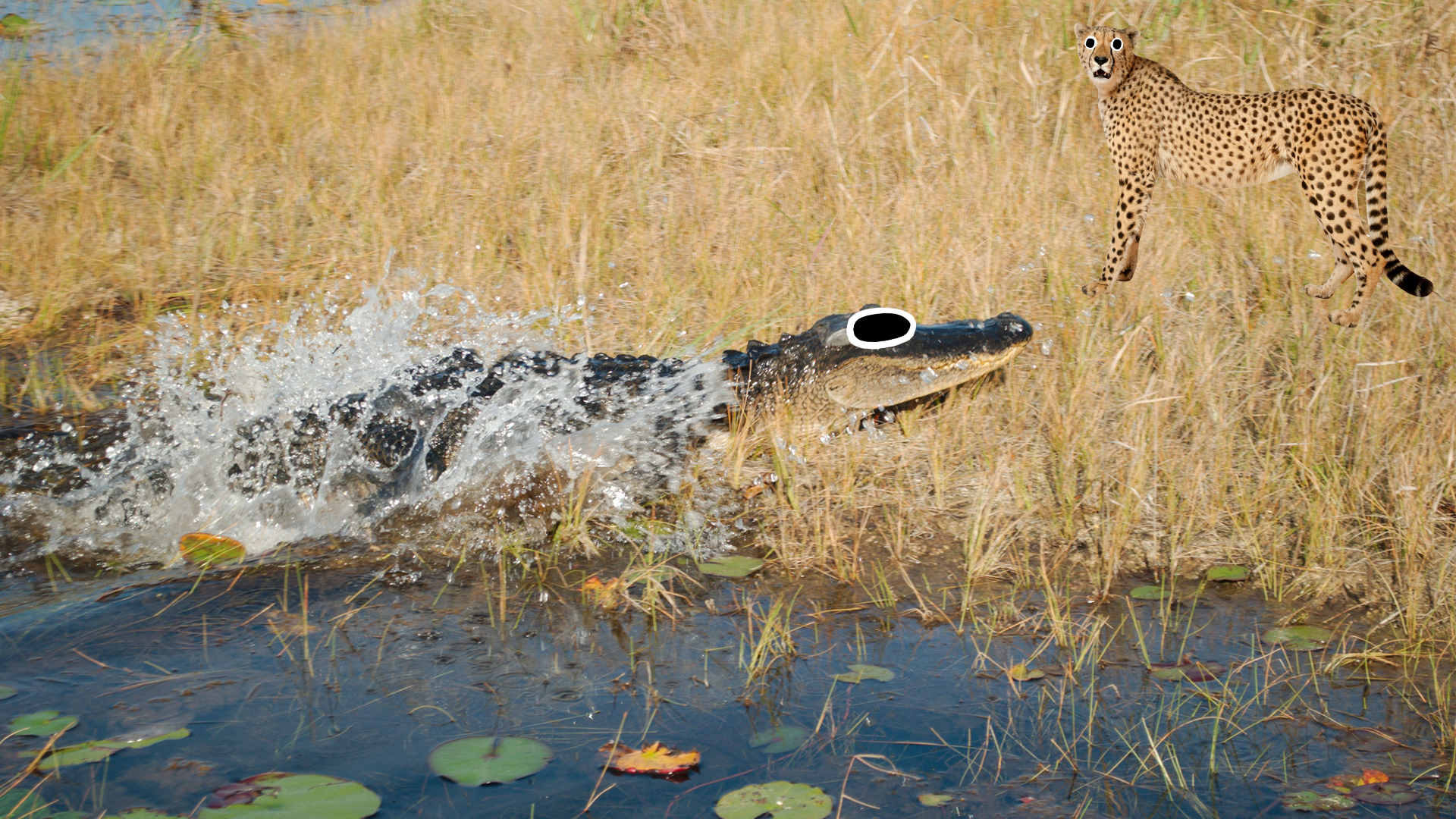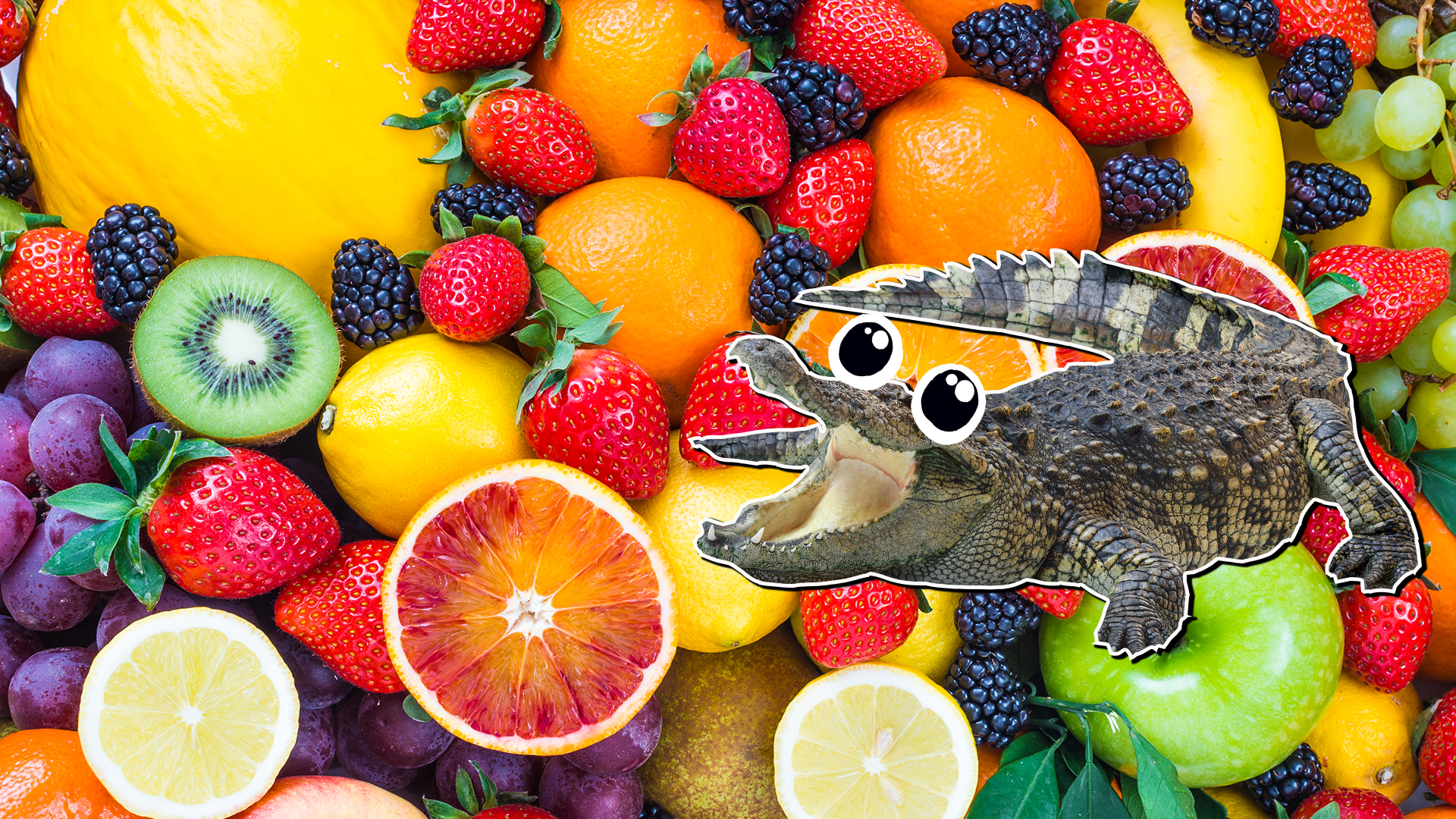15 Cool Facts About Alligators!
Get your fill of tooth-tally awesome gator facts here!
Are you a big fan of these toothy lads? Have you ever seen one in a zoo – or maybe even in the wild? Well, get ready to learn all about the majestic scaly beast that is the alligator! Do you know how many teeth they have, or why temperature matters to baby gators? Find out here! Don’t forget to check out some more animal facts – we’ve got cheetahs, pumas and even capybaras!
1. They can’t survive in saltwater

Unlike crocodiles, who have glands that help get rid of excess salt in their bodies, alligators can’t go near salty habitats like oceans and mangrove swamps. So, if you’re in saltwater and you think you see an alligator – it’s actually a crocodile (not that that’s great news either)!
2. They haven’t evolved much

Alligators haven’t changed all that much since the time of the dinosaurs! The American alligator first appeared 84 million years ago – the only reptiles that are older are tortoises and turtles! They’re also more closely related to dinosaurs than other reptiles.
3. Their gender depends on temperature

All right, this one is is kind of strange. For most animals sex is determined by DNA, but for alligators it depends on the temperature of the nest. If the nest is warm then boy alligators will hatch. If it’s cold, girl alligators will hatch instead! In-between temperatures will produce boy and girl alligators! They crack their way out of the egg using their “egg tooth”, a little spike on their noses that disappears when they’re a few weeks old.
4. They’re speedy

…but they get tired easily! They can run up to 35mph (which is faster than most humans), but they can’t keep that up for long. They’re sprinters, not marathon runners! They can also swim very fast in the water, lunging at prey at around 30mph and using their powerful tails.
5. They’re VERY big

Alligators continue to grow throughout their entire lives. Male alligators are usually 8-10 feet long, and the females are only slightly smaller. Older males can get as long as 15 feet and weigh around 1,000 pounds.
6. Their eyes glow in the dark

Their eyes are on top of their heads, which lets them hide almost completely in the water and still keep an eye out for prey. They also have a reflective structure in their eyes that will reflect light back – cats have the same thing! So, if you’re out on the river at night, use your torch to find gators!
7. They’re very toothy!

They have between 74 and 80 teeth and any given time – for comparison, adult humans have 32! Their teeth also fall out and are replaced constantly, and can go through 2,000 teeth in their lifetime!
8. They like fruit

While they’re best known for their meaty diets, alligators don’t mind the occasional piece of fruit! They actually help to spread seeds with their poop – very environmentally friendly!
9. They have two walks

When on land alligators have a “high” walk and a “low” walk. In the low walk they sprawl along on their bellies, which is more of a crawl than a walk. In their high walk they lift their bellies off the ground and strut!
10. They can get noisy!

Most reptiles don’t make very much noise, but the alligator has a pretty big vocal range! They’ve been known to roar at around 90 decibels (that’s about as loud as a lawnmower). For comparison the loudest noise humans make is usually around 70 decibels. Yikes!
11. They’re good parents

Female alligators will carry and care for their young for about two years, which is unusual for reptiles! She will also carefully guard her nest of eggs, and when the babies are ready to hatch (they let her know by making whistling sounds) she will dig them out and carry them down to the water in her jaws.
12. They hibernate, sort of

While they don’t fully hibernate like bears and hedgehogs do, alligators will dig holes in the mud and lie mostly dormant during the winter. Their body temperature goes down, but this is called “brumation”, not hibernation.
13. Their blood is antibiotic and antiviral

This helps to protect them from injury, but also means their blood might be useful against a number of infections humans can suffer from. So far it’s only been studied in labs and not used in medicine, though.
14. No, you won’t find any in the sewers of New York

A popular urban legend is that there are wild alligators living in the sewers of NYC, because people bring baby gators home from their native habitats like Florida and Mexico, then flush them down the toilet when they grow too big. This isn’t true – it’s too dirty and cold for alligators to live for very long down there. Though, people DO get baby alligators as pets, which is not a good idea at all (remember how big they get)! Apparently the city of New York does rescue alligators from unsuitable living conditions, but that’s part of a bigger problem where people buy and sell exotic animals they can’t look after.
15. They live in China, too!

We usually associate alligators with the southern USA and Mexico, but they also live in China! Unfortunately while there are loads of American alligators, the Chinese ones are currently endangered. This is partly because of habitat damage due to climate change, but also because of hunting. There are probably less than 100 adults in the wild right now.



















